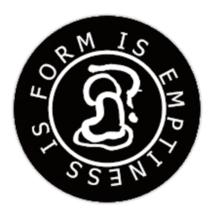FAQ
The title is a little audacious — we get that. Any kind of title is a mistake. But this title was chosen because Sunim learned Zen practice in some of the most eminent temples in Asia’s Zen tradition, and we wanted that to be reflected in the title of the course. The word “tradition” brings to mind something too stiff, conservative, or dead. So we chose the “lesser of two evils”. But the title is not meant to imply that the teachings of Sunim are any more “authentic” than anyone else’s, or any other tradition. It’s just a word to capture one quality or dimension of his experience.
The path of meditation and spiritual evolution cannot be adequately addressed in one book, let alone one online course. So the teaching was divided in two courses. The Zen Basics gives an overview of the fundamental elements of meditation. The Zen Novice takes those elements and goes for a deeper dive into developing your meditation, while addressing topics which are common for people to face when they begin their practice.
“Buddha” simply means “wake up”. It is NOT a god or a deity of any kind. It is merely a symbol of our already-awakened True Nature. The Buddha in these videos is a copy of a ninth –century Buddha from the Koryo Dynasty in Korea. It was given to Hyon Gak Sunim by a Korean Bikkhuni (Nun) for his second 100-day solo retreat in the Jiri Sahn Mountains (1998-99). And the Buddha is NOT wearing a baseball hat, Eminem-style: In the center of the Buddha’s head is represented, in gold, the Third Eye, representing wisdom. The Buddha’s hands are not in the “cosmic mudra” of meditation; rather, they are in the “relaxed” position, representing the relaxed mind of our innate, true, natural wisdom in everyday life.
Zen just means sitting in silence, observing the movement of breath, and turning the view back to interrogate the “place” of the nature of the witness. At the same time, while there are scientifically proven benefits from meditation, for some people with traumas, or with bipolar or psychotic conditions, sitting in silent meditation can bring people past their window of tolerance, and thereby can be harmful if these mind-states are investigated so deeply, especially without the direct, in-person guidance of an experienced teacher. Therefore, it is highly recommended that people who have any history of particularly challenging mental struggle should only engage meditation practice in consultation — and constant dialogue — with their chosen therapist. Notice the body, notice the mind: If you notice deleterious changes, immediately stop this meditation, and consult with your therapist.
Zen Meditation: The Basics is a completely self-paced online course — you have full access to all course materials immediately and you may study them at the pace that is most comfortable for you.
Zen Meditation: The Novice is a is a continuation of Zen Meditation: The Basics. It is a six-week Course. You will receive access to the lessons week by week.
After enrolling, you have unlimited access to the course for as long as you like – across any and all devices you own.
Yeah, we struggled with this for a while. Sunim feels particularly sensitive about anything having to do with “charging” for the Dharma. But an online course such as this is another animal altogether: the enormous unexpected costs for producing and promoting such a high-quality set of videos as this course was much more than we expected. Salaries needed to be paid, and equipment needed to be bought, as well as expensive software. Sunim has uploaded hundreds of hours of his talks and teachings on YouTube for years, with next to no “return”, which is how it should be. At least half or more of the people who attend Sunim’s retreats attend for free, because Sunim does not wish finances to be a barrier. If there is any “profit” left over from the registrations for this course, it will be plowed back into Sunim’s work to spread the Dharma teachings all over the world. In this way, your course registration can be seen as a donation for the work of Dharma.
Yes, absolutely. Scholarships will be offered in the future, especially to low-income and to those in historically underserved communities. Once our unexpectedly high production costs have been recouped, we expect to begin finding a way to opening these teachings to whoever wishes to handle them, whatever their financial condition.
If you are not satisfied with the course, you may contact us within 30 days of purchase to receive a full refund.
Simply write us via our support form and we will take care of that for you.
